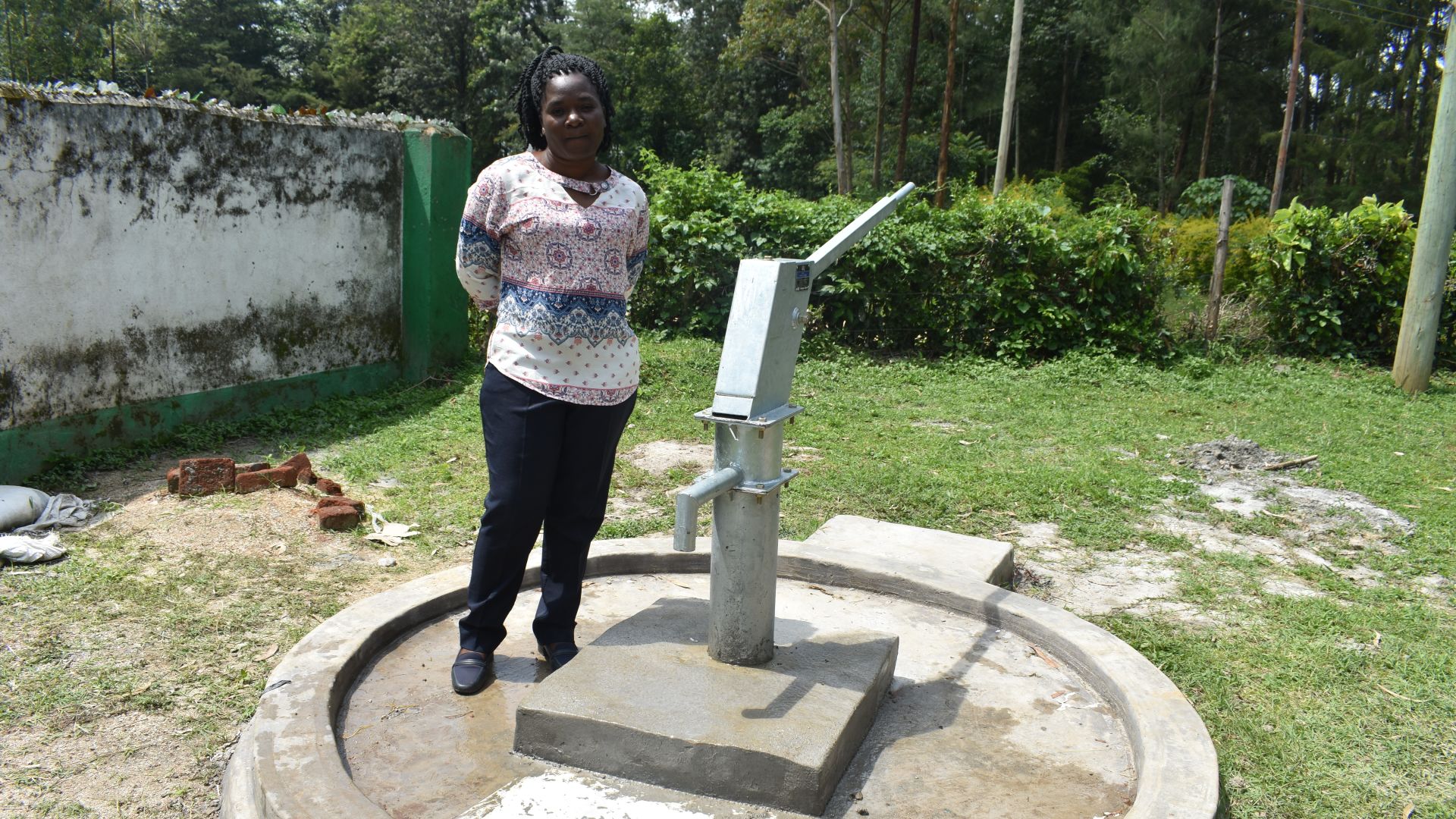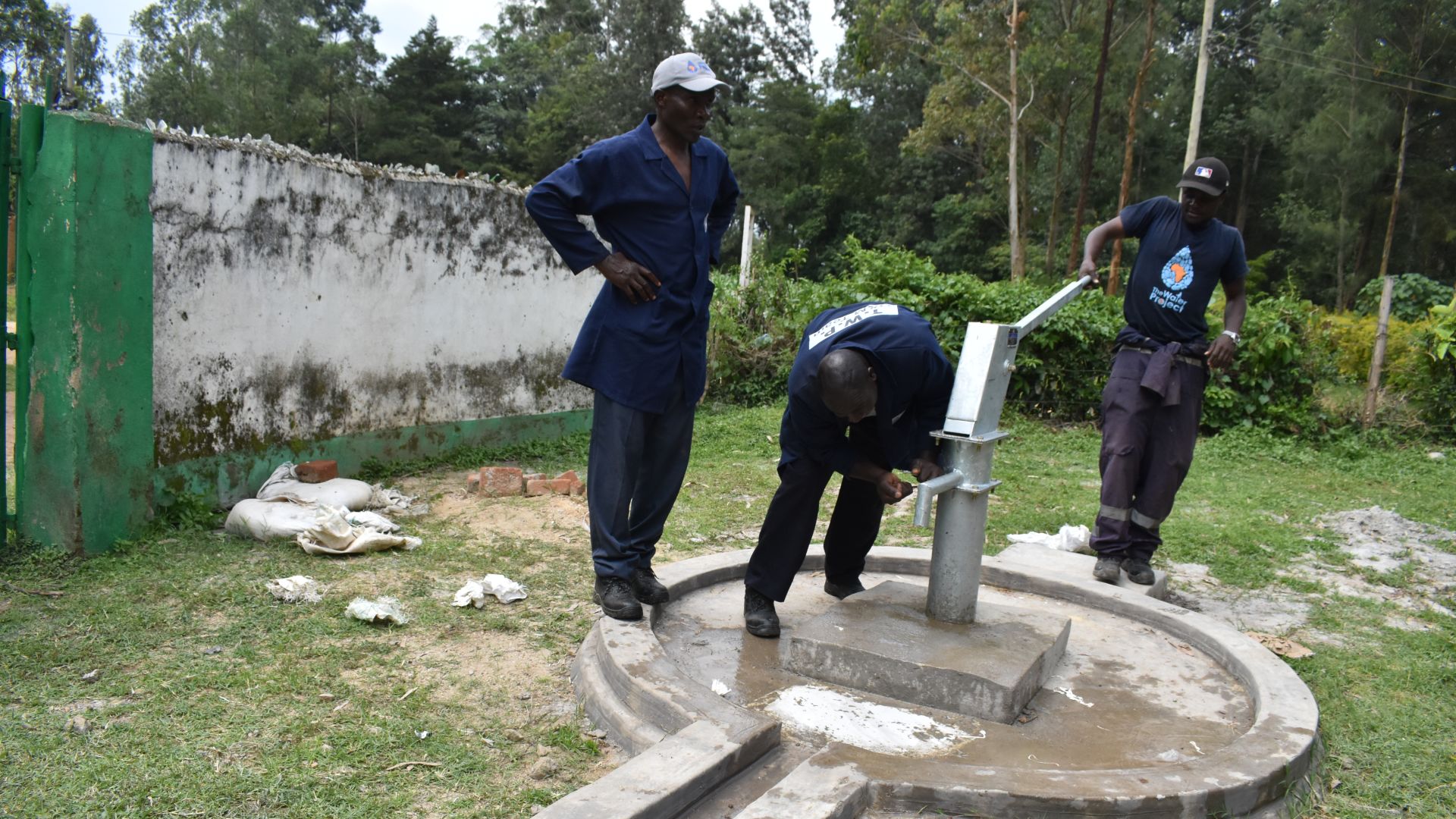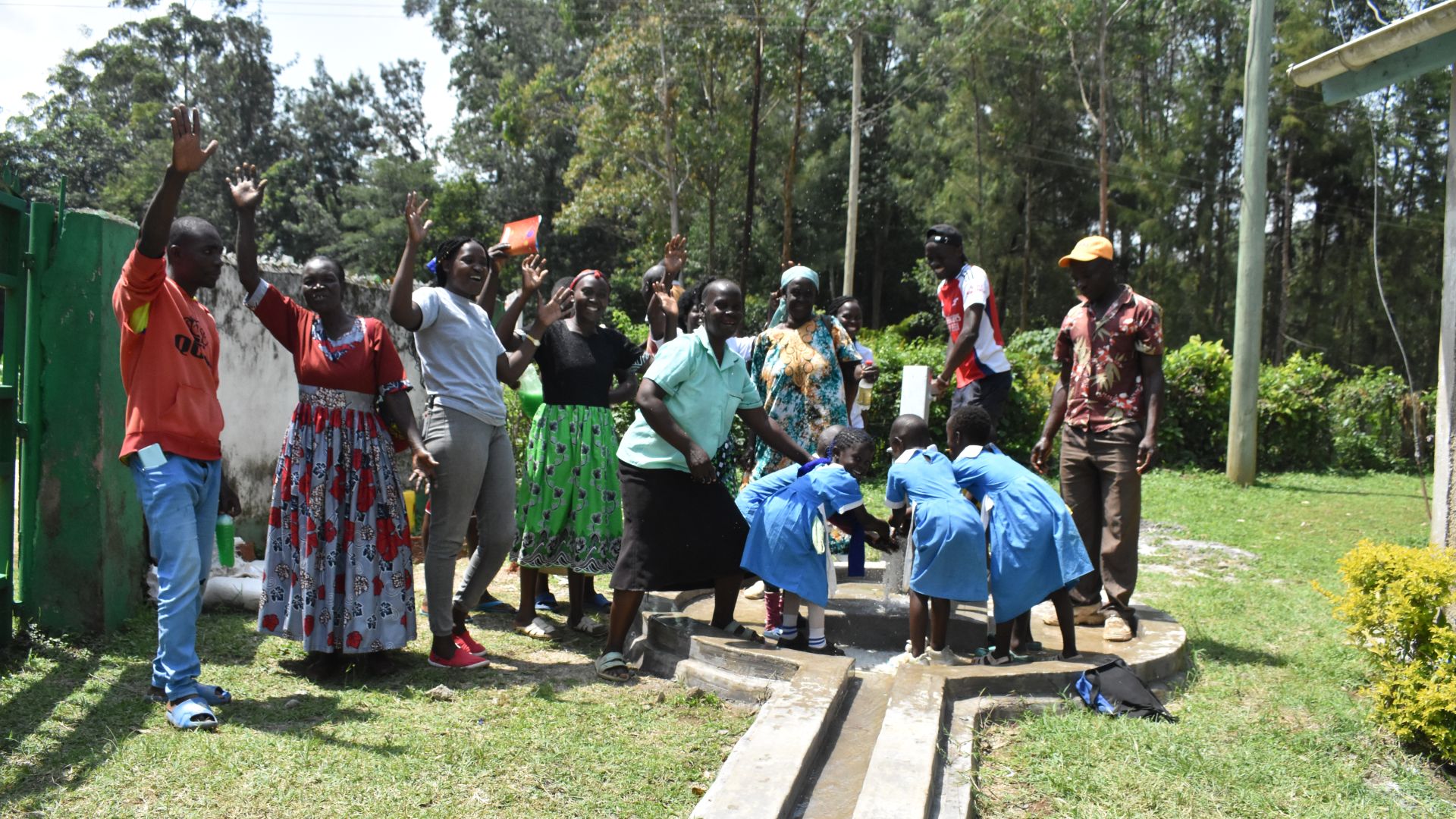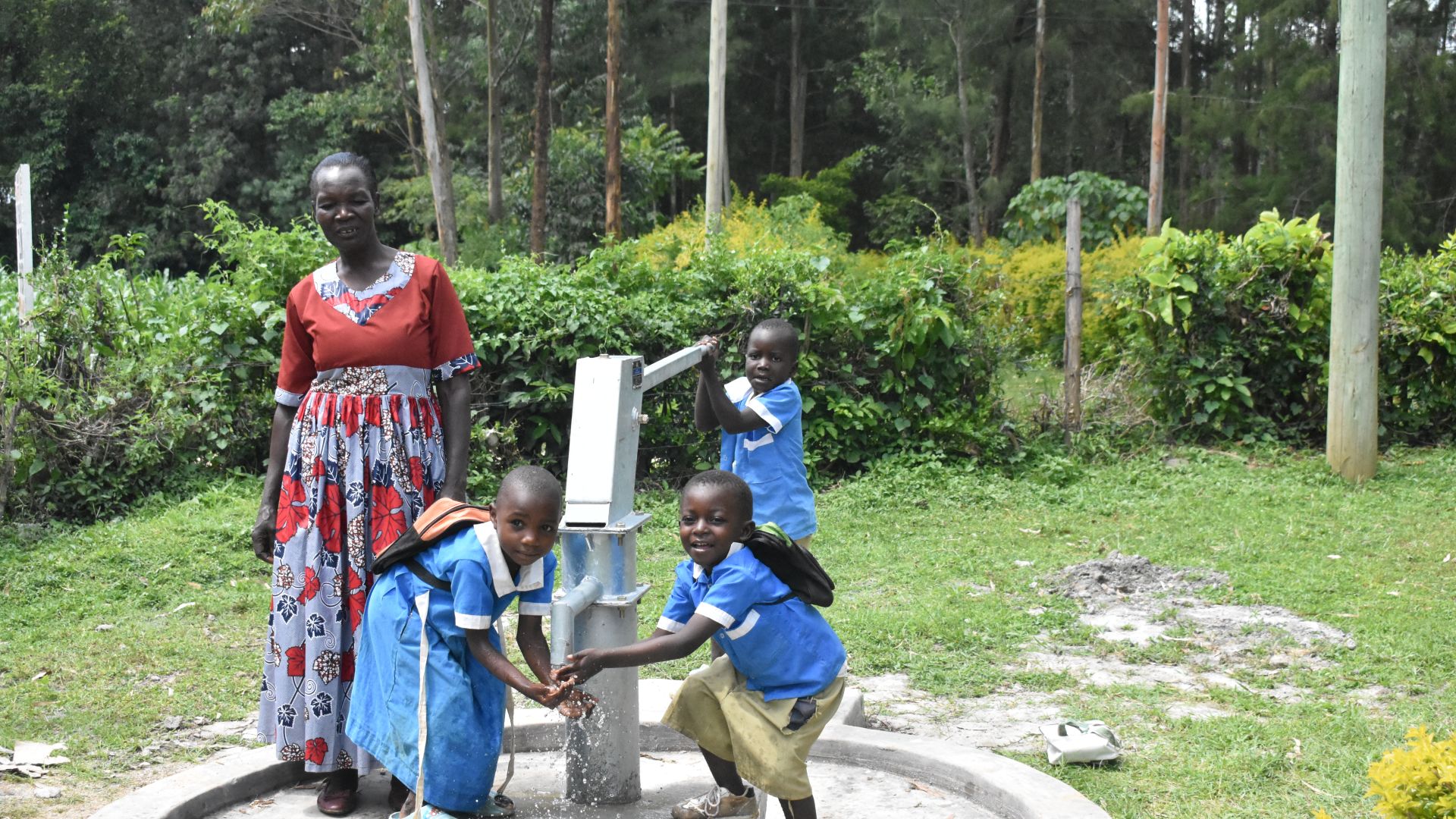The staff of Elwakana Health Center, which regularly treats an average of 60 outpatients a day, desperately needs clean water to offer the best medical care possible. Without it, their doors are shuttered.
There is a dug well in the community that staff can access, but it is far away, consistently overcrowded, and suffers from low water quantity. It runs dry, making collecting enough water to operate the health center impossible. The water they do manage to collect also risks making their patients more ill since it is regularly contaminated.

Therefore, the health center relies on rainwater collected in a small rain tank on the facility grounds. However, its water also quickly runs dry, and staff members are forced to leave the premises in search of more water. This leaves their station unmanned and further risks people's health.

Nurse Ruth collects water from the rain tank.
The rainwater tank only has a capacity of 2000 liters. It's not a reliable source because there is no nearby alternative when the tank is empty during the dry season. The staff walk long distances in search of water or sometimes hire someone to fetch water for them. This is time-consuming and costly, and the water is not clean, ultimately making it unsafe for consumption.
"Drinking water that harms your patient's health or your family should not be encouraged at all because the treatment of water-related illness is not easy. It's really costly," shared 37-year-old nurse Ruth Andika.

Ruth.
"This facility had to set aside some amount [of money] that the government normally gives on a monthly basis to be able to repair the broken dug well, but all have been in vain because the amount given to them is not even enough for the smooth running of the facility," Ruth continued.
Worst of all, the government mandates that when there is no water, the health center must close and not offer health services. This makes sense, yet it leaves those living in the area in a desperate situation, unsure of where to go for help when needed.
"Since the water point broke down, we are not allowed to do admissions because we don't have enough water to provide for the patients!" exclaimed Ruth.

"Water is life, in that without water our body cannot function normally, and because our body needs a lot of water so as not to be dehydrated, we term it as water is life."
Ruth desires to care for her patients well, yet she understands she cannot operate in a facility without water, leaving her feeling helpless.
Steps Toward a Solution
Our technical experts worked with the local community to identify the most effective solution to their water crisis. They decided to drill a borehole well, construct a platform for the well, and attach a hand pump.
Well
Abundant water often lies just beneath our feet. Aquifers—natural underground rivers—flow through layers of sediment and rock, offering a constant supply of safe water. A borehole well is drilled deep into the earth to access this naturally filtered and protected water. We penetrate meters, sometimes even hundreds of meters, of soil, silt, rock, and more to reach the water underground. Once found, we construct a platform for the well and attach a hand pump. The community gains a safe, enclosed water source capable of providing approximately five gallons of water per minute. Learn more here!
Handwashing Stations
Alongside each water source, we install handwashing stations at points of care and at the latrines, enabling everyone at the health center to wash their hands. Handwashing is crucial for preventing water-related illnesses within the health center and community. Health center staff will maintain the stations, fill them with water, and supply them with soap, which we will teach them how to make.
Latrines
We ensure there are Ventilated Improved Pit (VIP) latrine blocks that effectively prevent the transmission of fecal diseases. Each latrine will boast a durable cement floor for easy use and maintenance. We’ll ensure at least one stall is reserved for staff, along with gender-separated toilets that include menstrual hygiene facilities and accessible options for individuals with limited mobility.
Health Center Education & Ownership
Hygiene and sanitation training are integral to our water projects. Training is tailored to each health center's specific needs and includes key topics such as proper water handling, improved hygiene practices, disease transmission prevention, and care of the new water point. Encouraged and supported by the guidance of our team, a water user committee comprises a community health volunteer, the staff in charge of the clinic, a community leader, and the health center board representative. They assume responsibility for maintaining the waterpoint, promoting safe hygiene and sanitation practices, and keeping handwashing stations well-stocked.
Safe water and improved hygiene habits foster a healthier future for everyone in the community.

 Borehole Well and Hand Pump
Borehole Well and Hand Pump
 Rehabilitation Project
Rehabilitation Project































